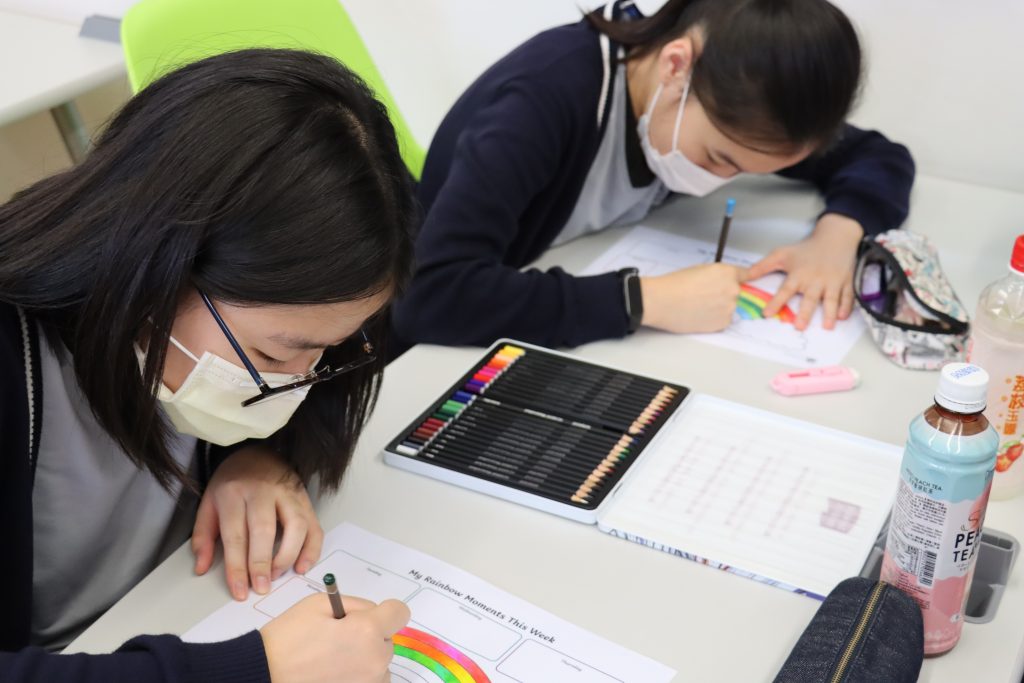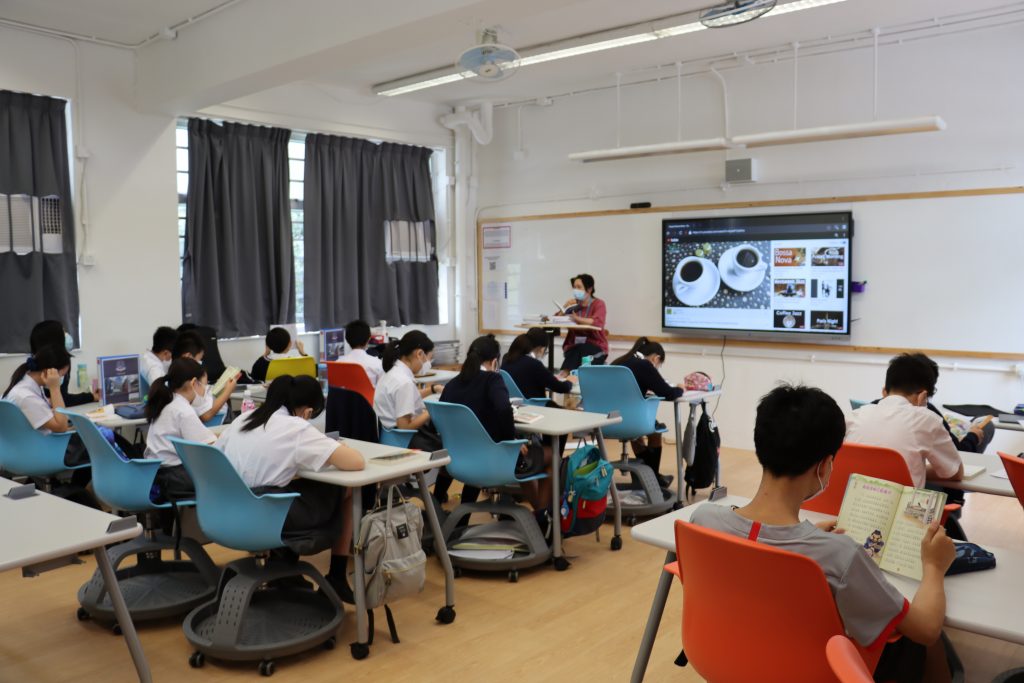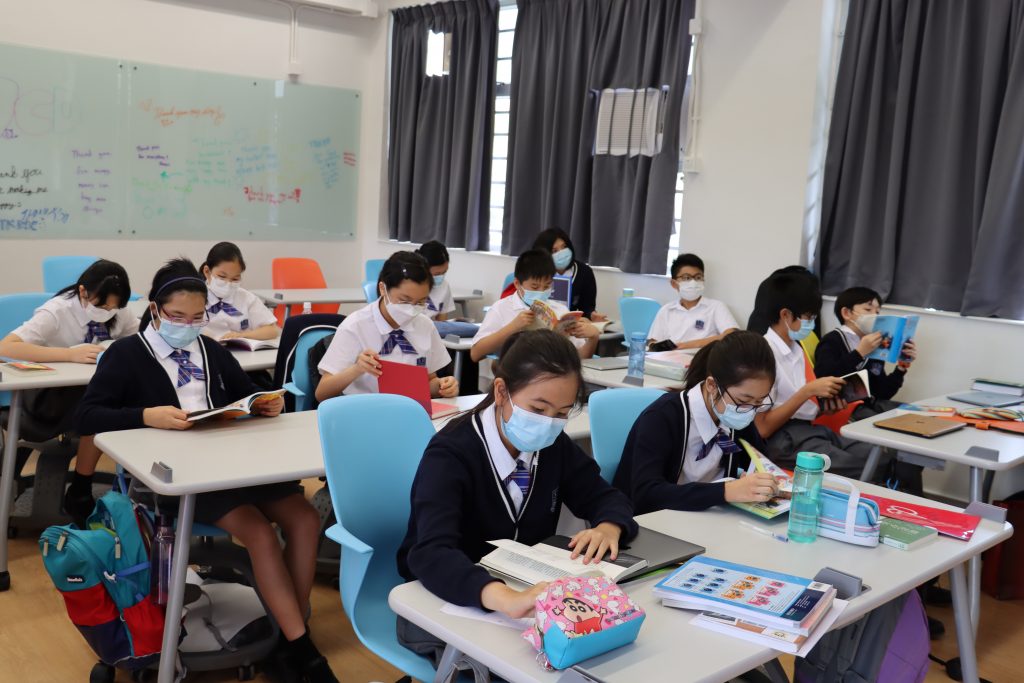Social Emotional Learning (SEL) stands as one of the important features of TKHC. It is our belief that students’ well-being is at the core of the learning community. Hence, all members in the learning community play an active role in SEL on campus.
We have developed an SEL programme that is delivered in the form of a series of stand-alone lessons. Our homeroom teachers take part in designing the programme and implementing each lesson with a structured lesson plan. Our homeroom teachers also serve as a coach to the students through implicit and explicit behavioural modelling during SEL lessons.
Other than the stand-alone lessons, there is another aspect of the SEL programme at TKHC that reflects character learning experiences: Character Trait Reflection (CTR). The objective of the CTR is to build students’ voice in developing desirable character traits. This exercise also aims to help them in achieving their learning goals annually. Students are required to engage in a weekly activity and record their reflection accordingly. Homeroom teachers monitor the completion of their reflections, the progress of collecting evidence for their CTR exercise and subsequently evaluate and celebrate their CTR outcomes through individual presentations. The CTR model is adapted from the IBDP Extended Essay reflections. We hope to prepare our students to get accustomed to a genuine reflection process which is also an important life skill.
Another distinctive feature of TKHC’s SEL programme is the theme-based learning during weekly Assembly. Our assembly consists of a sing-along session that celebrates the musical talents of our young learners and their achievements in any form of competition that takes place inside or outside the school, as well as theme-based learning. The themes we will cover in TKHC include “Growth Mindset”, “Digital Citizenship”, and “Leadership For Tomorrow” and they are all in line with our students’ needs. Each theme lasts two to three months to ensure a thorough coverage. Students are not just passive participants of the assemblies, but take up various roles in leading the assemblies.
The philosophy of SEL is about making a genuine connection and building a relationship between an adult and a student. Such a concept also highlights the importance of implementing SEL throughout the campus. The moment our students step into the campus, SEL is already a part of their learning process. The foci of development are “Self Awareness”, “Social Awareness”, “Self Management”, “Building Relationships” and “Making Responsible Decisions”. With these, we set a high expectation on our students’ development to be equipped with 21st Century skills.


